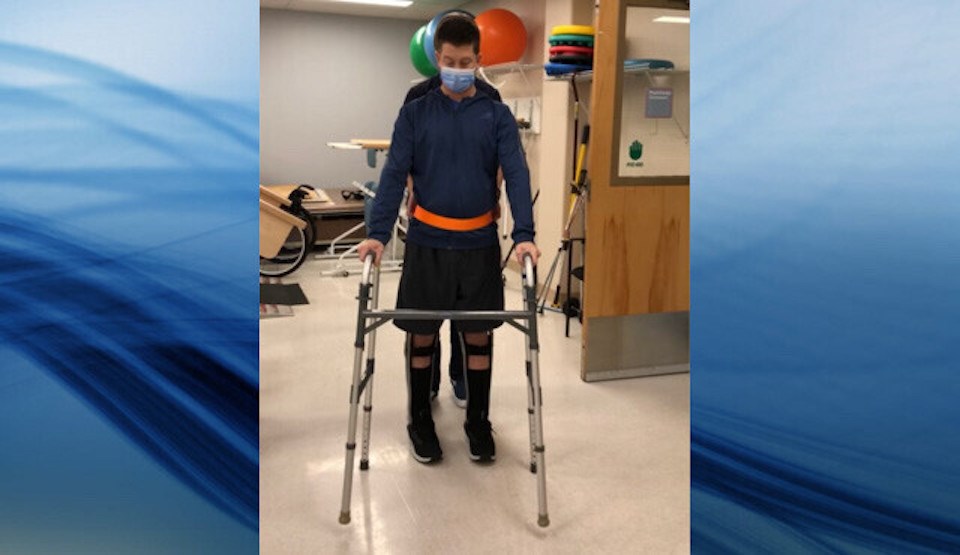A Summerland man is one step closer to compensation for his COVID-19 vaccination injury, but he still has a long way to go.
A federal program designed to compensate Canadians for vaccine side effects has approved paying out nearly $2.8 million so far, with many more individuals in the pipeline. Until last week, Julian Scholefield was one of those left waiting for word as to whether they would be included.
Scholefield, 45, contracted a neurological disease that from the waist down in 2021, 12 days after taking his second dose of a Pfizer-BioNTech vaccine.
He has been vocal about his frustrations with the lengthy process of accessing the federal Vaccine Injury Support Program (VISP).
Last week, more than a year after applying, he received notice his claim had been approved, though not for the potential full amount.
"In the letter, they provided an indemnity payout value. The maximum that I understand for that is $284,000. And I did not qualify for the max. But I have the opportunity to appeal," Scholefield told Castanet Wednesday.
"And then on top of that there is salary replacement, as well as medical expenses, and potentially home and vehicle modification expenses, all of which is sort of yet to be determined ... It's obviously really great to get that acknowledgement in that letter that says that they deem that [my condition] is caused by the vaccine. But it's still a long road in terms of determining exactly what's going to come out of it at the end of the day."
The latest statistics, dated Dec. 1 2022, show VISP had received 1,299 claims, just 50 of which had been approved at that time of reporting, to a total tune of $2.779 million in compensation. The program will provide its next public statistics in June.
Scholefield, while happy to make a small step forward, still has a lot of questions, which he sent back immediately to the government before deciding what to do next.
"I sent back about 30 questions. If I was to appeal, how does that process work? And, if I do appeal, is there any sort of face value that they would send me in the interim? All kinds of questions like that, where it's just getting a better handle on what the next step would entail," Scholefield said.
"I need to have all of the information at my fingertips. To just blindly say yes or no, especially with the the amount that I have been affected, as well as the dollar value that we're looking at ... It would definitely not be a decision you're going to take lightly."




